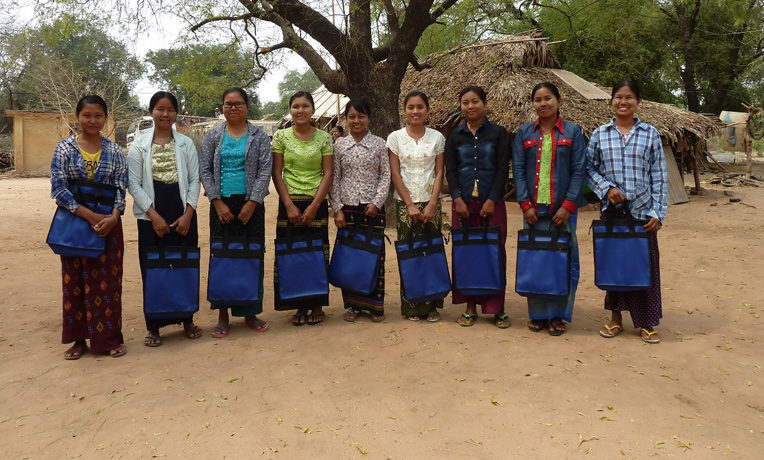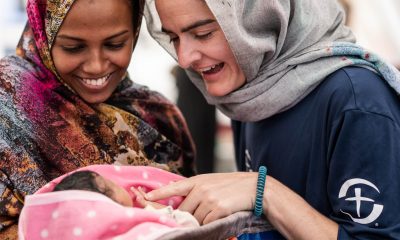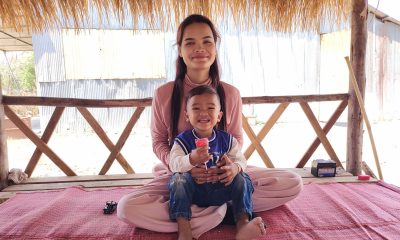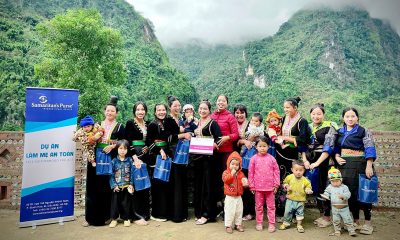Samaritan’s Purse trains women to be leaders in Myanmar.
“Let us be courageous and brave,” said Daw Thiri Yu,* a participant of the first leader mother training session in Myanmar’s Tada-U Township. She is one of 40 women Samaritan’s Purse is equipping to host mother-to-mother groups.
The leader mother program is working to reduce the region’s high rates of malnutrition among children under age 5 by creating avenues to share good health and nutrition practices with families. Samaritan’s Purse staff meet with leader mothers once a month to train and to address any specific obstacles the women in their groups are facing.
When I arrived at the first leader mother training, the nervousness of the participants was palpable. Eager to welcome the women, I hurried over to the building where they were huddled in the shade. They stood in silence, each set of eyes turned to the ground.
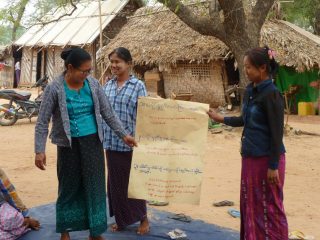
Mothers are taught how to lead the meetings.
I extended the Myanmar “mingalabar” greeting, which means “hello,” and was met with a few shy smiles, but most women merely nodded in acknowledgement. The mothers were invited to rest on mats in the shade, and a few tentative conversations began as the women started getting to know each other.
Samaritan’s Purse staff members Juana and Dan led the training. Their skilled, caring leadership immediately put the nervous mothers at ease. The women were placed into small groups in order to cultivate a sense of trust and community. As they talked, they began to open up, and the gathering was soon alive with laughter.
Juana prompted the women with topics to discuss within their small groups, and then the groups came together and shared their thoughts. Each time the women shared, they stood a little taller and spoke with more confidence. Daw Thiri Yu said that this activity fanned the flame of her courage and gave her confidence that she could lead a group.
These women are all mothers who have faced the challenges of raising children. They are experts on what the mothers in their villages need in order to feel supported. They are aware of their most pressing issues. The mother groups program combines the experience of these women with valuable health training, equipping them with knowledge to bring lasting change to their communities.
Once the mothers’ nerves had dissipated, their enthusiasm for the project shined. “I am so excited to share the information that I have with others,” Daw Thiri Yu said.
There are no healthcare workers in her village, but through the leader mother training she will be able to help improve community health. For me, this was the most encouraging aspect of the training: to see women discover that they can step up and be a part of the change they are so desperate to see.
I can’t wait to see how God will use this group of women over the coming months as Samaritan’s Purse trains them and they pass their knowledge on to others.
*Name changed for security.

